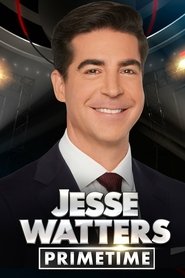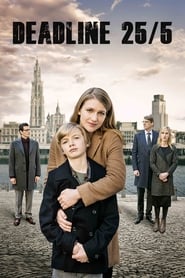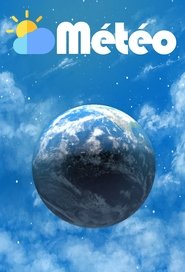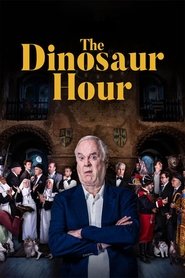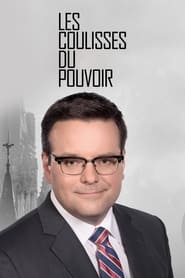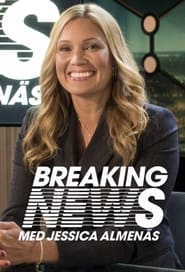Popular News TV Series on Tub Tv - Page 28
-
Windy City Weekend
2011
Windy City Weekend
2011
star 2.7Windy City LIVE is a local Chicago daytime talk show on ABC7 Chicago (WLS-TV) with Co-Hosts Val Warner and Ryan Chiaverini. Val and Ryan are joined every weekday at 1pm by a panel of contributors including social media producer Ji Suk Yi, showcasing the heartbeat and soul of Chicago including local hot topics, music talent, celebrities, spotlighting local heroes and charities, and upcoming events. -
Insight
1995
Insight
1995
star 6Australia's leading forum for debate and powerful first-person stories offering a unique perspective on the way we live. -
Sunday Night
2009
Sunday Night
2009
star 4Sunday Night is an Australian news and current affairs program produced and broadcast by the Seven Network. The program airs on Sunday nights at 6:30 pm, and is hosted by Seven News Sydney presenter Chris Bath. -
Jesse Watters Primetime
2022
star 1Jesse Watters brings his fresh take to Primetime. Each night, he'll speak with newsmakers from across the country and give Americans a show where straight talk is the only talk, and the obvious will never be left unsaid. -
45 Min
2010
45 Min
2010
-
Dish Nation
2012
Dish Nation
2012
star 5Dish Nation is a nightly "entertainment"/celebrity news program which attempts to satirize pop culture. Dish Nation features radio personalities from across the United States. It debuted on July 25, 2011 on Fox Television Stations. Filmed daily at their respective radio stations, the show highlights contrived on-air banter, satirical takes on Hollywood gossip, augmented with current popular music, animation and video footage. -
Fight Girls
2007
Fight Girls
2007
Fight Girls is an Oxygen original reality television series that spun off from a 2006 special which documented seven female fighters' attempts at winning a championship. The initial special aired on August 7, 2006 and the series premiered June 12, 2007. Fight Girls is produced by Scott Messick and Tom Weber. Similar in spirit to Spike TV's The Ultimate Fighter, ten female fighters live together and train with a Muay Thai instructor in Las Vegas for six weeks in an effort to fight for a Muay Thai championship in Thailand. The group of women is narrowed down to five via a three round fight between house mates set up by the head trainer. The losing fighter is eliminated from the house and the winner will go to Thailand at the end of the season. The theme song for Fight Girls is "Fingerprints" by Katy Perry. -
Nachtmagazin
2007
Nachtmagazin
2007
-
Deadline 25/5
2014
-
50 minutes inside
0000
-
Global Eye
2025
Global Eye
2025
Award-winning investigations - revealing secrets, rooting out injustice, and exposing crime, corruption, and abuse. The biggest stories from BBC correspondents all over the world. -
omg! Insider
2004
omg! Insider
2004
star 3.1omg! Insider is an American entertainment news program covering events and celebrities. It debuted on September 13, 2004 as a spinoff of Entertainment Tonight and started as a popular segment that took viewers "behind closed doors" and gave them "inside" information. Since becoming a separate program, it took a tabloid direction, and has gone through several formats since its 2004 premiere, though since the start of the 2011-12 season it has lost many of the tabloid elements and become more of a straight rundown of entertainment news. The original theme song was performed by Richie Sambora. On January 7, 2013, The Insider changed its name to omg! Insider. -
Météo
1946
-
Go' morgen Danmark
1997
Go' morgen Danmark
1997
star 7.3'Go' tomorrow Denmark 'is the whole of Denmark's current affairs and lifestyle program. Start the day with fun and loud laughter - and get food for thought and topics of conversation that you want to share the rest of the day. -
The Dinosaur Hour
2023
The Dinosaur Hour
2023
Comedy legend John Cleese presents The Dinosaur Hour, a new discussion show for GB News. In this series, John has the opportunity to talk to the people he most admires about the subjects that matter most to him. -
Brennpunkt
1989
Brennpunkt
1989
-
For fans
2023
-
Trump Bites
2018
Trump Bites
2018
 Netflix
Netflix
 Amazon Prime Video
Amazon Prime Video
 Apple iTunes
Apple iTunes
 Apple TV Plus
Apple TV Plus
 Disney Plus
Disney Plus
 Google Play Movies
Google Play Movies
 Paramount Plus
Paramount Plus
 Hulu
Hulu
 HBO Max
HBO Max
 YouTube
YouTube
 fuboTV
fuboTV
 Peacock
Peacock
 Peacock Premium
Peacock Premium
 Amazon Video
Amazon Video
 The Roku Channel
The Roku Channel
 AMC+
AMC+
 Kocowa
Kocowa
 Hoopla
Hoopla
 The CW
The CW
 Vudu
Vudu
 Starz
Starz
 Showtime
Showtime
 PBS
PBS
 Pantaflix
Pantaflix
 FXNow
FXNow
 Tubi TV
Tubi TV
 Kanopy
Kanopy
 Comedy Central
Comedy Central
 Crunchyroll
Crunchyroll
 Microsoft Store
Microsoft Store
 Redbox
Redbox
 Sun Nxt
Sun Nxt
 ABC
ABC
 DIRECTV
DIRECTV
 Crackle
Crackle
 Fandor
Fandor
 Plex
Plex


